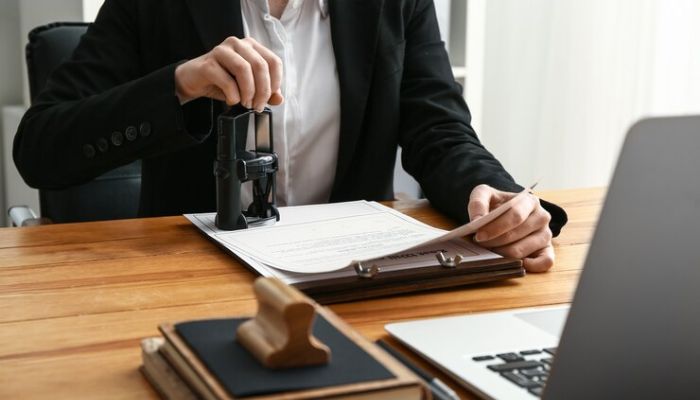Let’s face it: probate is one of those words you probably don’t think about until life throws you a curveball—like the loss of a loved one. If you’ve heard whispers about it in legal dramas or seen it mentioned in estate planning brochures, you might wonder what it’s all about. And more importantly, what does a Florida probate attorney actually do? If you’re scratching your head over the details, don’t worry. We’re about to break it all down in plain, simple language.
What is Probate, Anyway?
Before we dive into the role of a probate lawyer, let’s start with the foundation. Probate is the legal process of settling a deceased person’s estate—basically figuring out who gets what and ensuring everything is done by the book. It involves validating the will (if there is one), appraising the value of assets, settling debts, and distributing what’s left to the rightful beneficiaries.
In Florida, where retirees and snowbirds flock for the sunny weather and tax benefits, the probate process is especially relevant. Estates can range from modest family homes to multimillion-dollar investments, which makes the process of settling affairs both emotional and legally complex. That’s where a skilled Florida probate attorney steps in to help.
A Guide Through the Maze of a Probate Attorney
If you’ve ever tried to assemble furniture from instructions in another language, you know how frustrating it can be to navigate something you don’t understand. That’s probate in a nutshell for most people. A Florida probate attorney is like the guide who steps in with a flashlight and a map, helping you figure it all out.
Here’s what they do, in a nutshell:
1. Filing the Paperwork
Probate attorneys are pros at dealing with legal forms and deadlines. When a loved one passes away, the executor (or personal representative) of the estate must file a petition with the local probate court to officially begin the probate process. This might sound simple, but the paperwork can be overwhelming, especially if you’re grieving.
Your probate lawyer will ensure that all forms are completed accurately and submitted on time to avoid delays. In Florida, where probate laws can be particularly specific, their expertise ensures that every T is crossed and every I is dotted.
2. Validating the Will
If there’s a will, it needs to be reviewed by the court to confirm it’s legitimate. This might involve proving that the document was signed and witnessed correctly. If there’s no will—or if someone contests it—things can get tricky.
A probate attorney steps in to represent the personal representative or beneficiaries and ensures the court’s requirements are met. If there are disputes over the will, the lawyer becomes your advocate, fighting for your rights and helping to resolve conflicts.
3. Handling Creditors and Debts
Did you know that settling an estate isn’t just about dividing up assets? The deceased person’s debts, like credit card balances, mortgages, or medical bills, need to be paid off before any inheritance can be distributed.
A probate lawyer helps identify creditors, notify them of the estate proceedings, and figure out what debts are valid. They also work to ensure that creditors don’t take more than they’re entitled to.
4. Appraising Assets
What’s an estate really worth? From bank accounts and real estate to jewelry and family heirlooms, everything needs to be inventoried and appraised. This step ensures that beneficiaries receive their fair share.
In Florida, where beachside condos and investment properties are common, valuing assets can be more complicated than you’d think. A probate attorney works with appraisers and financial professionals to ensure everything is properly accounted for and accurately valued.
5. Distributing Assets
Once all debts are settled and taxes are paid, what’s left gets distributed to the beneficiaries according to the will (or Florida’s intestacy laws, if there’s no will).
This is often the moment where family dynamics come into play. Even in close-knit families, disagreements can arise when it comes to who gets what. A probate lawyer acts as a neutral party, helping to smooth over tensions and ensure everything is divided fairly and according to the law.
When Do You Need a Probate Lawyer?
Now that we’ve covered the basics of what a Florida probate attorney does, you might wonder: do you really need one? The short answer is “usually, yes.”
Florida law doesn’t require every estate to go through probate, but the vast majority do. And even if the process seems straightforward, unexpected complications can arise. Here are a few scenarios where hiring a probate lawyer is a no-brainer:
There’s no will: When someone passes away without a will (this is called dying “intestate”), the court must decide how to distribute their assets based on Florida law. A probate lawyer can make sure this process goes smoothly.
The estate is large or complex: If the deceased owned multiple properties, businesses, or high-value assets, probate can quickly become complicated.
Family conflicts: If disputes arise among heirs, a lawyer can mediate and help resolve issues legally.
You’re unfamiliar with Florida probate laws: Laws vary from state to state, and Florida has unique rules and deadlines that must be followed.
The Importance of Choosing the Right Attorney
Not all probate lawyers are created equal. If you’re looking for a probate attorney in Melbourne FL, or anywhere else in the Sunshine State, you’ll want someone who knows Florida’s laws inside and out.
A good probate lawyer isn’t just someone with legal expertise—they’re someone who understands the emotional toll that probate can take. They’ll guide you through the process with compassion and patience, answering your questions and keeping you informed every step of the way.
Wrapping It Up
At the end of the day, a Florida probate attorney does much more than shuffle paperwork. They’re your guide, your advocate, and your problem-solver. Whether you’re dealing with the loss of a loved one or planning for the future, a probate lawyer can make a challenging process a whole lot easier.
If you’re feeling overwhelmed or just have questions about what comes next, don’t hesitate to reach out to a local probate attorney. Sometimes, the best way to find clarity is by leaning on someone who’s been through it all before—and knows exactly how to help.



